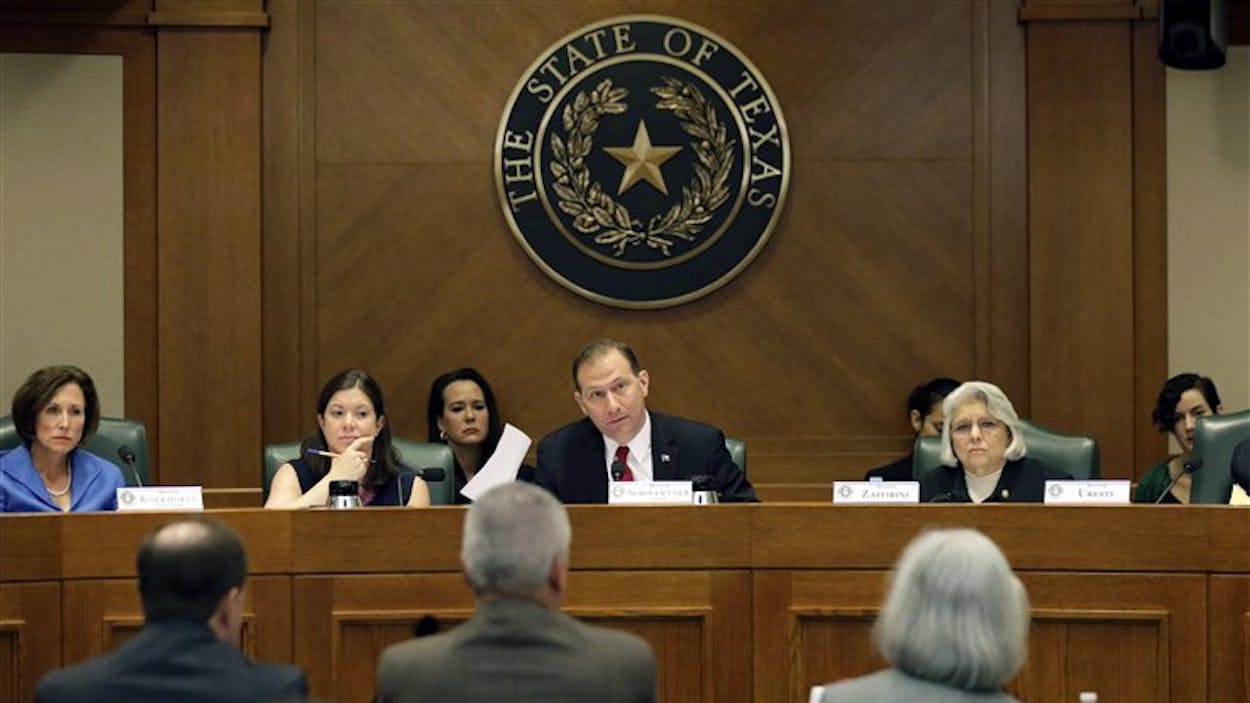Planned Parenthood—the reproductive health provider that’s come under renewed fire after undercover video, surreptitiously recorded by abortion foes, was leaked—got some more bad news Monday morning. Texas Health and Human Services Commission inspector general Stuart W. Bowen Jr. wrote a letter to the organization declaring that “The State has determined that you and your Planned Parenthood affiliates are no longer capable of performing medical services in a professionally competent, safe, legal and ethical manner,” and that as a result, Planned Parenthood will be cut out of the state Medicaid program.
Via the Houston Chronicle, which broke the news this morning, we can take a look at the full letter:
All of this raises more questions than it answers, so let’s take a look at the most pressing ones as we determine what this actually means for Texans and the future of Planned Parenthood in the state.
Why is the state seeking to eliminate Planned Parenthood from Medicaid?
Planned Parenthood has been a controversial organization for a long time, given that some of its locations provide abortions. But it’s been under renewed scrutiny since July, when the anti-abortion group The Center for Medical Progress released videos in which Planned Parenthood officials discuss reimbursements various branches receive for the donation of fetal tissue to research organizations.
Once those videos were made public, politicians who’ve publicly opposed Planned Parenthood in the past began holding hearings and investigations around the country. In Texas, that investigation has been fairly expansive—in addition to statewide hearings, the Harris County district attorney’s office launched a criminal investigation into the organization.
There’s plenty of debate regarding the content of the videos, and the ethics of what they show, that we won’t wade into here. (For more on that, our own Erica Grieder weighed in with criticism of the organization after the release of the initial video back in July, and in the New York Times, Katha Pollitt issued a defense.) But ultimately, the outrage generated by the undercover videos, warranted or not, is the reason Planned Parenthood received that letter.
Can the state of Texas eliminate Planned Parenthood from Medicaid funding?
The “why” of what Texas is doing here is pretty easy. The “how”? That’s more complicated. Texas doesn’t fund Planned Parenthood, and Medicaid is a federal program, albeit one that’s administered by the state. Ninety percent of the funding processed by Medicaid in Texas comes from federal tax dollars. What Texas is saying with this letter is that it’s no longer going to process reimbursements from the federal Medicaid program to Planned Parenthood. It’s not at all clear right now if they can do that.
Earlier this year, Louisiana made the decision to do the same thing—and within half an hour of the Houston Chronicle breaking the story, a federal judge ordered Louisiana to continue providing Medicaid funding while the legal issues at question are heard.
Most of those legal questions are jurisdictional. For example, is Planned Parenthood overstepping by appealing in federal court, rather than going through the state? And can a state tell a federal program what organizations it’s allowed to spend its money on?
But it’s worth noting that what happens in Louisiana won’t necessarily set a precedent that carries over to Texas on its own, even if the Fifth Circuit Court of Appeals, which oversees both states, were to weigh in. In Louisiana, Planned Parenthood doesn’t provide abortion services. It does in Texas, which complicates the issue.
So though it’s unclear if it’s even legal for the state to do this, the ruling in Louisiana gives an idea of where the courts are leaning here—but ultimately, it’s likely to be a protracted legal fight.
What would it mean if Texas does end Medicaid funding to Planned Parenthood?
That’d be bad news for the future of Planned Parenthood, for sure. Nationally, more than 40 percent of Planned Parenthood’s $1.3 billion in revenue comes from federal funding, and of that $528 million, 75 percent of it comes from Medicaid. In other words, Medicaid represents about a third of Planned Parenthood’s revenue, and any organization that loses access to a third of its revenue stream with the stroke of a pen is going to be in trouble.
It’s clear from Bowen’s letter that that’s the point of this action. He makes references throughout to the other women’s health organizations that could pick up the slack without having been featured in controversial videos. There are questions about how many of those clinics there actually are, though, and what services they provide. All of which is to say that there are a lot of people in Texas who still use Planned Parenthood for their health care needs, and who may find themselves needing to switch to another provider if the courts don’t intervene here. We’ll see how all of that shakes out in the days, weeks, and months to come—but the stakes here are certainly high.








